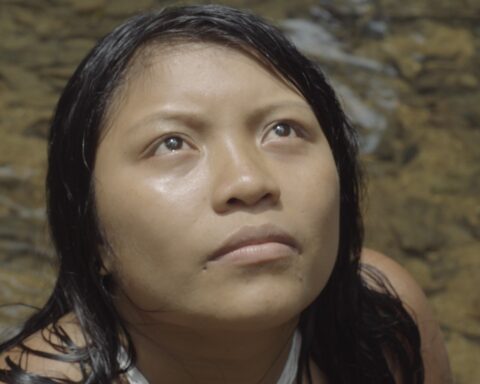Family Tree
(USA, 96 min.)
Dir. Jennifer MacArthur
Programme: Land|Sea|Sky (International Premiere)
The roots of Black experiences in America, especially in areas such as North Carolina, are inextricably linked to the dispossession of generations of individuals. The USA’s history of slavery steeps the land in the history of people forced from their homelands onto death trap voyages to a new continent where they were used for free labour to enrich those that called themselves “master. Following the long and excruciating process of emancipation, many of these individuals managed to beat the odds and all the restrictions set before them. They secured their own properties and became true landowners themselves. By doing so, these pioneering patriarchs and matriarchs set the foundations for generational wealth for their relatives in ways that so often was tragically denied to innumerable others.
Jennifer MacArthur’s affecting documentary Family Tree traces the results of these journeys. It follows the roots from those who first planted the seeds that their children, grandchildren, and future progeny continue to sow. Family Tree focusses on several families that have taken up the cause to not simply hold onto these properties and allow them to run fallow, nor to succumb to the easy solution of simply selling off for additional development.
Rather, we see how these members of the Black community are quite literally planting for the future, taking on a similar cause, but manifesting it in ways that quite literally involve setting down new roots. Tree planting and pruning, along with on-property forestry management, become a means by which families remain connected. The spaces are rejuvenated and the continuing legacies of these families are maintained.
Naturally, the act of managing these trees intersects with more global concerns. The photosynthetic occupants of these lands contribute overtly to a reduction in carbon gasses, and therefore provide a direct mode of attenuating climate change. These are incremental benefits, to be sure, witnessed over years or decades before witnessing some of the more overt successes. This is yet another way in which forestation mirrors the tenacity of those that arrived generations before, where thoughts of the here and now were drowned out by genuine attempts to build that most tenuous of propositions: a genuine legacy.
The film itself is told in a relatively straightforward fashion, employing casual interviews interspersed with moments in the fields that are slightly more organic in their construction. We see a range of members from the Black community that are at various stages of their own farming journeys, from those who have set a fairly clear path, to others just beginning to make major commitments both financial and temporal to these endeavours.
The experts weigh in, the brush is cleared, and the lumber piled up, with quotidian concerns weighing heavily on those involved. Yet throughout, there’s a sense of duty to the past. The sacrifices of those who came before and managed to secure these lands are never far from mind. These various branches give the film it’s most powerful messaging, illustrating how these actions prove healing. The world is being made a better place by these actions, but so are families brought closer together: The traumas of the past are overcome and the legacy is furthered as the uncertainty of the future is offset by the wide-eyed optimism of the individuals we meet in the film.
A fascinating story that’s told in a generally accessible manner, Family Tree is a fine testament to those family members it documents. While it’s conventional in its delivery, it offers a rich subject that’s rarely amplified, making the voices of those involved all the more vital and impactful. It would be fascinating to see follow-ups years down the line, when the forests have grown and further generations have either taken up the cause, or moved on to their own ambitions. Time will tell, but as the film illustrates, there’s much to celebrate about those who have taken up the cause.











